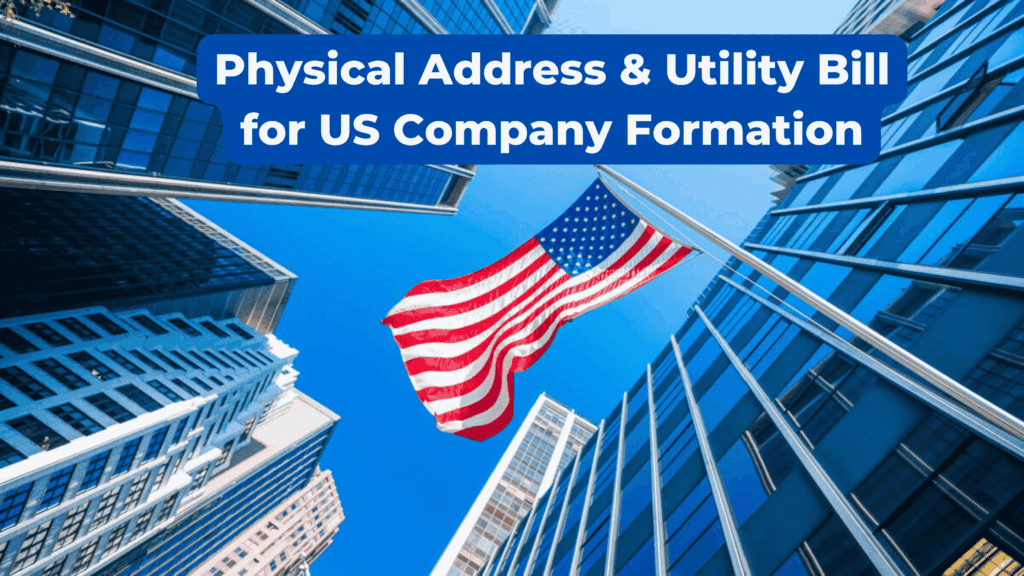When it comes to incorporating your business in the United States, entrepreneurs often find themselves deciding between two popular states: Wyoming and Delaware. At Clemta, we frequently help our clients navigate this decision and choose the state that best suits their business needs.
A quick search will reveal that both Wyoming and Delaware are highly business-friendly states. However, the key is not just to select a business-friendly state but to choose the one that aligns with YOUR specific business goals and circumstances.
U.S. Citizens: Incorporate in Your Home State
For U.S. citizens, it is generally advisable to incorporate in the state where you reside. If you choose to register your business in a state other than your home state, you will likely need to file a Foreign Entity Registration. This process essentially informs your home state about your business operations in another state.
- Delaware Foreign Qualification: Check requirements here.
- Wyoming Foreign Qualification: Check requirements here.
Filing as a foreign entity means you’ll need to pay fees in both states and maintain a registered agent in each. This can significantly increase your costs and administrative responsibilities. That’s why we recommend incorporating in your home state if you’re a U.S. resident.
Non-U.S. Citizens: Wyoming or Delaware?
If you are not a U.S. citizen and do not reside in the United States, Wyoming and Delaware are both excellent options for incorporating your business. These states are known for being foreign-friendly and offering significant tax advantages. But which state is the better choice for your business in 2025? Let’s dive into the key factors that differentiate Wyoming and Delaware.
| Wyoming | Delaware | |
| No state corporate income tax | ✔ | |
| No tax on corporate shares | ✔ | ✔ |
| No franchise tax | ✔ | |
| Minimal annual fees | ✔ | ✔ |
| One-person corporation | ✔ | ✔ |
| No annual report is required until the anniversary of the incorporation date | ✔ | |
| No general business license is required | ✔ | ✔ |
| Nominee shareholders are required | ✔ | |
| Share certificates are not required | ✔ | |
| Minimal initial filing fees | ✔ | |
| No minimum capital requirements | ✔ | ✔ |
| Meetings may be held anywhere | ✔ | ✔ |
Wyoming LLC & Corporations
1. Tax Advantages in Wyoming
Wyoming remains one of the most tax-friendly states in the US in 2025. Here’s why:
- No Corporate Income Tax: Wyoming does not impose a corporate income tax, making it an attractive option for small businesses and startups.
- No Personal Income Tax: If you operate your business in Wyoming, you won’t be required to pay personal income tax either.
- No Additional Taxes: Wyoming also does not impose excise tax, estate tax, inheritance tax, or intangible tax.
The only tax obligation to keep in mind is the annual license tax, which is required when filing your annual report. This makes Wyoming a top choice for entrepreneurs looking to minimize tax obligations.
For more details on Wyoming’s tax climate, check out our in-depth blog post here.
2. Annual Fees in Wyoming
Maintaining your company’s good standing status is crucial, and Wyoming is one of the most cost-effective states for annual fees.
- Annual Report Fee: The minimum fee for LLCs, corporations, and LPs is $50, plus a $2 processing fee. This fee increases based on the total value of your business assets.
- Due Date: You can determine your annual report due date by checking the Wyoming Secretary of State’s database here.
- Payment: Wyoming makes it easy to pay your annual fees through its online portal, which you can access here.
Compared to Delaware, Wyoming’s lower annual fees are particularly appealing for startups and small businesses.
3. Legal System in Wyoming
While Delaware is known for its advanced legal system, Wyoming offers a straightforward and business-friendly environment for smaller companies. If you’re just starting out or don’t anticipate dealing with complex legal disputes, Wyoming’s legal system is sufficient for your needs. Additionally, the lower costs make it a practical choice for startups and small businesses.
Delaware LLCs & Corporations
1. Tax Considerations in Delaware
Delaware’s tax structure differs from Wyoming’s, and while it may not be as tax-friendly for small businesses, it offers unique benefits for larger corporations:
- No Sales Tax: Delaware does not impose a sales tax, which can be a significant advantage for certain types of businesses.
- Income Tax: Delaware does have a state income tax, but non-residents who incorporate in Delaware and operate their businesses outside the state are typically exempt from this tax.
If you’re considering Delaware for its tax benefits, read more about how to maximize your savings in our detailed guide here.
2. Annual Fees in Delaware
Delaware’s annual fees are generally higher than Wyoming’s, which can be a deciding factor for smaller businesses.
- Annual Franchise Tax: Delaware requires LLCs and corporations to pay an annual franchise tax. The fee varies depending on your business structure and revenue.
- Payment Portal: You can file your annual report and pay your franchise tax through Delaware’s online portal here.
While Delaware’s annual fees are higher, the state’s legal and tax advantages often outweigh the costs for larger corporations and businesses seeking outside funding.
3. Delaware’s Court of Chancery
One of Delaware’s biggest advantages is its Court of Chancery, a specialized court that handles business disputes. This court is known for its expertise in corporate law and efficient handling of cases without juries. If you plan to raise venture capital or work with outside investors, incorporating in Delaware may be a strategic choice, as many investors prefer Delaware for its business-friendly legal environment.
Wyoming vs. Delaware: What’s the Best Choice for Your Business?
Clemta’s Recommendation for 2025
- Choose Wyoming: If you’re a small business owner or startup looking for low costs, fewer taxes, and straightforward compliance requirements, Wyoming is the better option. It’s especially ideal for entrepreneurs operating on a lean budget.
- Choose Delaware: If you’re planning to raise capital, attract investors, or scale your company into a larger corporation, Delaware’s robust legal system and investor-friendly environment make it the go-to choice.
Why Choose Clemta for Your Incorporation Needs?
Whether you decide on Wyoming, Delaware, or another state, Clemta is here to simplify the incorporation process for you. We offer:
- Comprehensive Consultancy: Our experts guide you through every step of incorporation and post-incorporation procedures.
- Tailored Services: From company formation to EIN, ITIN, and tax filing, we provide all the services you need to establish and maintain your business in the US.
- One-Click Solutions: With Clemta, you can select the services you need, and we’ll handle the rest—so you can focus on growing your business.
Ready to get started? Visit Clemta here and let us help you build your business in the United States.







